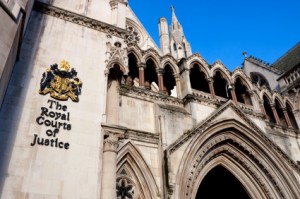The client of a claims consultancy that employed lawyers could not claim legal professional privilege (LPP) on their advice, the High Court has ruled.
Mr Justice Akenhead decided that the fact the employing firm – construction claims consultancy Knowles – did not hold itself out as a firm of solicitors or group of barristers and was not engaged to provide legal advice was decisive in defeating the claim for LPP.
In Walter Lily & Company v Giles Mackay and DMW Developments [2012] EWHC 649 (TCC) [2], the judge said the onus must be on the party seeking to rely upon LPP “to establish the essentials to support it”.
“The fact that Mr Mackay honestly understood that the two gentlemen with whom he was dealing at Knowles were qualified and practising barristers or solicitors [it was not clear that they were at the relevant time] is immaterial because their employer was not retained by the defendants to provide the services of barristers or solicitors.
“The fact that he was mistaken in his understanding is immaterial. Policy considerations come into this because a party to litigation might casually meet someone who he honestly believed was a qualified solicitor (but who was not) and might receive legal advice. The protection of privilege is not intended to extend to the relationship between a person and another who is not in fact a qualified and practising lawyer, save in exceptional circumstances
The judge pointed out that the decision related only to LPP. It did not deal with litigation privilege and “there remains an outstanding possible issue as to whether or not advice and other communications given by claims consultants in connection with adjudication proceedings are privileged”.
The High Court drew heavily on the Court of Appeal ruling in the Prudential case – in which accountants tried unsuccessfully to claim LPP – which is going to the Supreme Court [3] later this year to decide whether LPP can extend beyond solicitors and barristers.
Meanwhile, last month the Competition Appeal Tribunal held [4] that Tesco could claim litigation privilege in relation to notes of third-party witness interviews conducted by Tesco’s lawyers during an investigation by the Office of Fair Trading under the Competition Act 1998.
It is said to be the first time the English courts have addressed the question of whether litigation privilege is available for competition investigations.
Lord Carlile QC said that though an administrative procedure was being pursued under the Act, it was “sufficiently adversarial” by the time Tesco contacted the witnesses to amount to litigation.
